
I took him down the memory lane, PEAP (Poverty Eradication Action Plan), the PMA (Plan for Modernisation of Agriculture), PAP (Poverty Alleviation Program), and the National Vision 2020. From Bonna Bagaggawale (Prosperity for All) to the National Development Plan (NDP), I counted them.
I put it to him that unless the NPA finds a lasting solution to the cause of failure to implement the good plans and programs they keep coming up with, even the Vision 2040 will suffer the same fate. It was at this point that the good professor asked, “Ramathan this is the very reason I sought you out; what should we do to get our plans implemented?”
I answered him with a question; at NPA what is your view? What have you established as the main cause to this problem? He said, “We think it an attitude problem; Ugandans, especially technocrats have a very bad attitude towards work. They do not put in enough effort get government work done.”
Musevenicracy fails national policies
This is when I realised the real tragedy of our country. Even the main planners are unaware of the realities under which they plan. They confuse symptoms as the causes! I told him that the main cause of failure to implement government programs and plans was presidentialism or call it “Musevenicracy” — a distasteful tendency by the President to interfere with everything which undermines the existing institutions.
I reasoned that Musevenicracy has deprived Uganda of collective decision-making at the political level. “It is President Museveni’s populist approach to governance that is breeding policy incoherence in the country thereby undermining the morale among technocrats and other leaders in government ministries and departments,” I said. It is this low morale that the guys at NPA mistook with poor attitude towards work.
I invited the NPA to look at the rate at which national plans and programs get impaired by policies and programs initiated and launched by State House without any consultations and sufficient attention or commitment to the level of sustained funding necessary for their effective operation. I told the senior economist at NPA, “Don’t be surprised if one of these days you read in the papers that a new program, far alien to the Vision 2040, has come out of State House upon which government will dedicate resources and effort.”
A week later, boooom…headlines were screaming, “Museveni launches a massive poverty eradication campaign among NRM war veterans.” I couldn’t help but laugh loudly! I was laughing not because my prediction had come to pass. I laughed because I was bemused how people can be fooled almost all the time. Mr. President, the fact that the Luwero veterans could assemble, listen to you, and clap animatedly at your nth promise to eradicate poverty from their area, whose impoverishment you contributed a great deal, left me very, very amused!
It is Sir Francis Bacon who, way back in the 17th Century, said, “Utopia is nothing but inspirational rhetoric.” Mr. President, moments after you were sworn in on 29 January, 1986, you declared, “This is not a mere change of guard, it is a fundamental change.”
Reactionary anti-poverty programs
In your 1996 presidential manifesto under the theme “Tackling the Tasks Ahead,” you pledged to construct roads and build dams to generate electricity and add value to our produce in order to improve their homestead incomes. In 2001 elections you pledged to consolidate anti-poverty programmes and increase household income. In 2006 you launched Bonna Bagaggawale (Prosperity for All) program, where you particularly promised thus, “NRM government will in the next five years make every Ugandan household earn at least Shs. 20 million every year.”
Every promise and enthusiasm for making all of us has repeated the cycle of its predecessors: idealism, high expectations, disappointing results, and cynical backlash.” Why? The main limitation to Uganda’s anti-poverty programs is the fact that they are more reactionary than genuinely planned programs.
PAPSCA came prior to the Constituent Assembly (CA) elections; Entandikwa came set the momentum for the 1996 presidential elections; while the Bonna Bagaggawale was a sweetener for the 2006 elections. Now I have no doubt in my mind that this latest effort among the Luwero veterans is a reaction to “Sejusamania” and to a lesser extent as a carrot intended to prepare the ground for the 2016 elections. Yet Ugandans seem either unaware of this or cannot say enough is enough! But why? Why can’t Ugandans, including even war veterans whose grievances are as old as their grey heads, see through these political manipulations?
David Cay Johnston calls it the politics of “keeping people in poverty by trying to bring them out of it.” In Luwero where Gen. Saleh is tasked with a familiar job of handing veterans with sacks of money to “transform their 4 acres of land into modern gardens”, roads are impassable, people buy (expired) medicines from kiosks and these medicines are prescribed by semi-illiterate-self-styled medical workers, human beings and fauna share water reservoirs and dwellings, and the best school in the sub-county celebrates when its best student gets a third grade in national examinations!
Panadol for malaria?!
Surely how can you expect those veterans and their children, living in such a sub-county to break through the poverty web? Instead of giving them this money to extend their economic tragedy, because they will have to repay, why doesn’t this government use the money to fix the feeder roads in every parish of Luwero, build dispensaries and stock medicines and train more primary health workers, extend safe-drinking water to every parish, buy farm implements and high-yielding seed for all the poor to modernize farming, buy textbooks for UPE and USE schools, construct more electric power dams to electrify the entire country? This is what the poor need from your government, Mr President, to gradually improve their lives.
Uganda’s households were more successful in the 1960s not because the then government gave them money. Government provided an enabling environment in which these people amassed wealth. But over the years, academic government policies took their wealth. No rural household will be able to accumulate wealth when on every sack of coffee or litre of milk or box of fruits or tray of eggs sold, 80%, or more, of the proceeds have to be spent on transport cost due to poor roads or for buying expensive drugs from the privately owned clinics.
It is a shame that NRM has been in power for 27 years and people residing in places as near to the city as Luwero and my home area of Butambala, and even Mukono find it difficult to transport their agricultural produce to markets because roads are impassable. How much does it cost to fix a dry-weather road? People suffering from malaria are being given panadol in government health facilities and you talk about poverty eradication through handouts! Come on!
It is Adam Urbanski who said, “If we always do what we’ve always done, we will get what we’ve always got.” I have always thought NRM was a good government that only needed reform. A friend of mine had a different view. He has always told me that the NRM party will never succeed in reforming itself, let alone transforming the country. I am now convinced I might have been wrong and he was right!
My only consolation is that like the veterans you are mobilising, most of you NRM leaders are in the evening of your lives. We, therefore, know that the future of this country does not belong to you; it belongs to our generation. I have a dream that this politics of keeping people in poverty by trying to bring them out of it will end with the Luwero veterans.

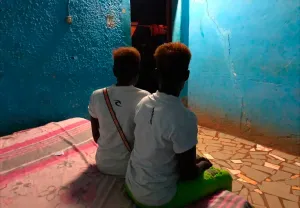
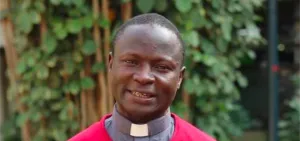
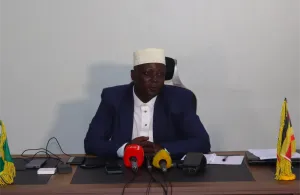

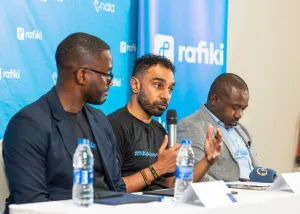
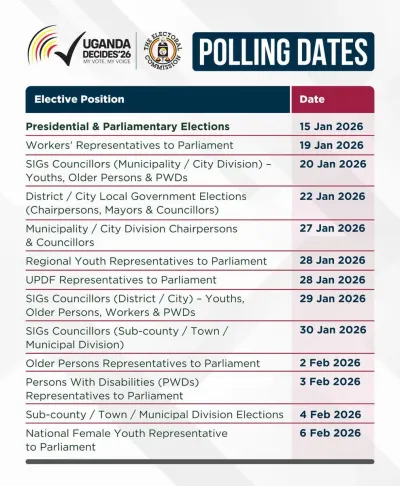





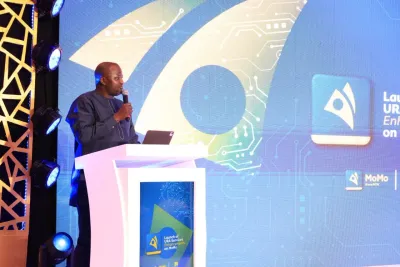

Ramathan Ggoobi
Ramathan Ggoobi is Policy Analyst, and Researcher. He lecturers economics at Makerere University Business School (MUBS) and has co-authored several studies on Uganda's economy. For the past ten years, he has published a weekly column 'Are You Listening Mr. President' in The Sunrise Newspaper, Uganda's Leading Weekly
Leave a Comment
Your email address will not be published.